37 products







- White Wine
- Chardonnay
- Sustainable, Vegan-Friendly
- Dry
- Medium Bodied
- 750ml
- 12.5% alc./vol
About the Winery
Domaine de Mauperthuis

A family estate created by Marie-Noëlle & Laurent Ternynck, Domaine de Mauperthuis is located in Prehy, near the town of Chablis. Their wines express the terroir of this amazing region and the vineyards are currently undergoing the transition to organic. Domaine de Mauperthuis covers around twenty hectares of vineyards around Chablis. The estate, in the Burgundy appellation, is planted in Chardonnay, Pinot Noir, Sauvignon and César, on land facing south, benefiting from exceptional sunshine.
Press Reviews
Wine Align
91 points (2020) - David Lawrason
This is a quite rich, slightly oxidative style of unoaked chardonnay with pale golden colour and a ripe nose of baked apple. Peach pie, toasty lees and vague nuttiness. It is medium weight, smooth and almost creamy with fine acidity and mineral underpinning. The length is excellent. Tasted June 2022
- White Wine
- Pinot Bianco
- Sustainable
- Dry
- Light Bodied
- 750ml
- 13% alc./vol
About the Winery
Kellerei Bozen - Cantina Bolzano
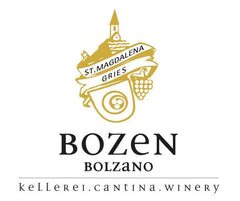
Nature’s gifts must be employed with respect and understanding.
The Cantina Bolzano winegrowers have a strong focus on near-natural methods and sustainably managed vineyards. They are committed to treating the soils and vines with the greatest care. In a slow process of maturation the best results are achieved with expert helping hands: daily inspection of the vines, thoughtful pruning, careful thinning – all the little jobs that lay the foundation for a top-quality harvest. For a unique quality wine, time is all important. During months of passionate dedication on the part of our winegrowers, top quality grapes ripen in the generous sun of Alto Adige. After the harvest in autumn, the grapes are brought in and sensitive vinification begins under the watchful eye of our winemaker Stephan Filippi and his team.
With long years of experience in winemaking and a passion for the product, he creates unique and distinctive quality wines. Subtle wines that are full of character and very much in keeping with the spirit of the times.
The many accolades and awards won by the wines of Cantina Bolzano are due in no small part to Stephan Filippi’s intuitive relationship with wine and his commitment to excellence.
Kellerei Bozen - Cantine Bolzano

Cantina Bolzano, based in the town of Bolzano, traces its roots to two of Alto Adige’s most historic cooperatives: Santa Magdalena, est. 1930 and Cantina Gries, est. 1908. After deciding to merge in 2001, Cantina Bolzano was created. Bolzano is located in the middle of a valley basin surrounded by hilly vineyards that grow from 200 meters above sea level up to 1000. North and south meet in this valley, and the sun warms the stony soils with its pronounced diurnal temperatures, protecting the vines from the cold.
The average growers’ plots in Sudtirol averages only approx. 1 hectare, and the area, with its famed reputation and steep slopes, is an expensive area to farm. The member of Bolzano (approx. 300 in all) own many of the best vineyards throughout the region, including the Valle Isarco, and pool their resources to create top quality wines. And while no grower is certified organic, many practice organic viticulture and all of them adhere to natural practices in their vineyards. Most growers have lived on their farms with their families for generations. They protect their land and cultivate their vineyards as they have done for generations with total respect of the environment where they live.
Press Reviews
Wine Align
91 points - Michael Godel
Yet another stellar pinot bianco from the collective Bozen collection to present one of the better global white wine alternatives. Not for Alto Adige mind you, but there is a world out there that knows so little about the grape and here would be the place to begin a new and exciting varietal journey. Tart and at its high moments also bracing, lime spritzing here and there, fruit pungency and intensity running amok and frankly everywhere. Pulse, energy and vitality, almost as if you can here the crackling, like ice on the coldest of days. Cool climate pinot bianco rocks. Drink 2024-2026. Tasted August 2024.
90 points - Megha Jandhyala
This is a delightfully engaging pinot bianco, with clear, bright notes of golden currants, peaches, apricots, and jasmine blossoms. The palate too is bright, with appealing layers of fresh fruit. It feels pleasantly textured and fleshy, supported by uplifting acidity, while the finish is appealingly drawn out and flavourful. Tasted August 2024.
90 points - Sara d'Amato
A tart and dry style of pinot bianco, finely crafted with more intrigue than the norm. Features delicate notes of bergamot, white pepper, and the faintest touch of lees autolysis, along with citrus blossom that lingers on the finish of very good length. Offers impressive concentration and complexity that matches the premium price. Tasted August 2024.
89 points - John Szabo, MS
The reliable coop of Bolzano delivers a ripe and perfumed, gently candied citrus version of pinot blanc in the hot 2023 vintage, certainly on the softer side, carressed by creamy acids. It moves languidly across the palate, comfortably and predictably, yet lacking the mineral twang and incisive cut of the top vintages from the region, if wholly drinkable over the near term. Tasted August 2024.
- Red Wine
- Primitivo
- Sustainable
- Dry
- Full Bodied
- 750ml
- 13.50% alc./vol
About the Winery
Cantine Paradiso
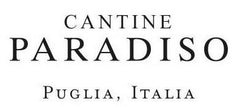
Cantine Paradiso is located is the South of Italy, in the region of Puglia. During the estate's 60-year history, the Paradiso family have always given the utmost importance to their close ties to Puglia's unique terroir, promoting the area's winemaking culture and constantly improving the quality of their production. The ongoing results confirm the choices made by three generations of down-to-earth vignerons closely bound to tradition and sensitive to innovation.
- White Wine
- Clairette, Grenache Blanc, Marsanne, Picpoul
- Organic, Vegan-Friendly
- Dry
- Full Bodied
- 750ml
- 13.50% alc./vol
About the Winery
Château de Montfaucon

Just across the Rhone river from the beautiful vineyards of Chateauneuf-du-Pape, the Lirac appellation extends itself on the low hills alongside the river. The history of Château de Montfaucon dates back to the 11th century when the castle's first tower was built. The castle's role in history was strategic; the Rhône River was the border between the French Kingdom and the Holy Roman German Empire. Montfaucon was one of many castles and fortresses along the Rhône River constructed to guard the border.
Rodolphe de Pins took over the family estate of Montfaucon in 1995 and subsequently rebuilt the winery and began practicing sustainable agriculture. He honed his winemaking skills in Barossa at Henschke and Vieux Telegraphe in Châteauneuf du Pape before returning to Lirac, so needless to say, his familiarity with the local varieties is well established.
Press Reviews
Wine Align
92 Points - David Lawrason
This is a blend of usual suspects among the white grapes of southern France with marsanne leading at 40% followed by clairette at 35%. It was fermented and aged in French oak barrels which accounts for the quite deep yellow gold colour. The nose is rather reserved but exotic and complex with waxy notes, apricot, orange peel, honey and wood spice. It is full bodied, almost thick, creamy and warming with 13.5% abv. Quite a mouthful, with some sense of wood tannin on the finish. Needs very rich savoury dishes. Excellent length. Tasted Nov 2025
- Rosé Wine
- Prieto Picudo
- Sustainable, Vegan-Friendly
- Dry
- Medium Bodied
- 750ml
- 13.5% alc./vol
About the Winery
Bodegas y Viñedos Pardevalles
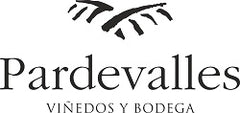 Pardevalles is recognized for being one of the driving forces behind the D.O Tierra de León, betting on the development of the indigenous grape varieties Prieto Picudo and Albarín Blanco. In 1949 Rafael Alonso founded Pardevalles continuing with the family tradition of growing grapes and making wine. The winemaking tradition in León goes back more than 400 years, famous for its centuries-old caves where wine was originally made.
Pardevalles is recognized for being one of the driving forces behind the D.O Tierra de León, betting on the development of the indigenous grape varieties Prieto Picudo and Albarín Blanco. In 1949 Rafael Alonso founded Pardevalles continuing with the family tradition of growing grapes and making wine. The winemaking tradition in León goes back more than 400 years, famous for its centuries-old caves where wine was originally made.The vineyards of Pardevalles are located between 750 and 820 metres above sea level, in an area with a Continental climate. They grow in poor, rocky alluvial soils which helps maintain the freshness in the wines. The philosophy of the Estate is grounded in making wines which express the character and identity of their origin, with a deep respect for the earth and the indigenous varieties of grape, combining tradition, innovation, and hard work.
Press Reviews
WineAlign
90 points - Sara d'Amato
Pours a luminous, deep pink, this rosada from Leon is made entirely of the indigenous prieto picudo grape, more typically a blending variety with dark skins and often resulting in wines with licorice-tinged black and red fruit. With youthful exuberance and potency, this salty and succulent expression features a wealth of lightly candied red berries, slippery tannins and a touch of welcome bitterness that contributes balance and a sensation of freshness. Best to enjoy in its youthful condition but it has the concentration for another year or two of aging. Tasted February 2024.
- Red Wine
- Cabernet Sauvignon, Merlot
- Dry
- Medium Bodied
- 750ml
- 13.6% alc./vol
- Red Wine
- Nero d'Avola
- Natural, Organic, Vegan-Friendly
- Dry
- Medium Bodied
- 750ml
- 13.00% alc./vol
About the Winery
Cantine Barbera
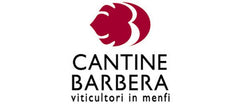
Cantina Barbera is located in the Menfi Coast, on the west coast of Sicily. The vineyards are about one mile from the Mediterranean Sea: an uncontaminated deep blue sea, facing South, where low cliffs and sandy dunes create a beautiful environment protected by the Belice River Natural Reservation Fund.
A third generation farmer, Marilena Barbera farms the Inzolia that her grandfather planted in the 20's, just as she attends to the native varietals that are the new frontier of her own generation: Perricone, Nerello, Alicante, Nero d'Avola and Grillo. Marilena makes her wines praticticing organic farming and natural winemaking, while paying utmost respect to Menfi's terroir.
"At the winery, I chose to work only with spontaneous fermentations and to adopt non invasive winemaking practices, in order to respect the unique personality of Sicilian native grape varieties and the beautiful land to which they belong."
- Red Wine
- Cabernet Franc, Merlot
- Dry
- Medium Bodied
- 750ml
- 13.50% alc./vol
About the Winery
Château du Moulin Noir
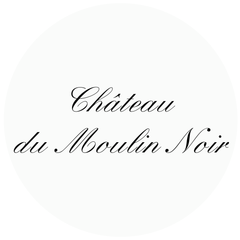
This beautiful right-bank Bordeaux estate consistently produces high-value, elegant and classic Merlot dominant wines and is considered one of the most famous Château of this appellation. Located in Montagne-Saint-Emilion, Château Moulin Noir consists of seven hectares of vineyards on clay and limestone soils.
This château owes its name to a family feuddating back to the Middle Ages. Two brothers were arguing about their father’s legacy with the youngest brother being incredibly jealous that everything went to the elder. He was so jealous that he burnt the château to the ground - Moulin Noir translates to “blackened Mill”.
Press Reviews
Wine Align
91 points - Sara d'Amato
This notably complex right bank blend from a satellite appellation of Saint-Emilion offers appealing savory notes along with a mineral, iron component as well as licorice spice. The oak treatment is wonderfully integrated with wood spice elevating the bright red fruit. Harmoniously matured, graceful and very elegant. The staying power of the finish is impressive. Drinking very well now. Tasted January 2019.
- Red Wine
- Grenache
- Organic, Sustainable, Vegan-Friendly
- Dry
- Full Bodied
- 750ml
- 14.5% alc./vol
About the Winery
Pago Aylés

Pago Aylés was founded by Federico Ramón, who in 2003 began his dream of classifying this unique land as the first Vino de Pago in the Aragon region. In the Spanish wine quality pyramid, the Pago stands as a top tier or grand cru winery. Just before Federico died, his dream came true in 2010, as Aylés became the 10th Vino de Pago in Spain.
Today his three children continue to produce wines from this special land. The vineyard site has a long history of winemaking, dating back to the 12th century by Spanish monks. Influenced by the River Huerva and the Monte San Pablo mountain, the soil is a mixture of clay, limestone and chalk – ideal for making high-quality wine. Caves, ravines and old river beds can be found all over the estate, which is brimming with wildlife.
Press Reviews
Wine Align
90 points (2023) - Michael Godel
Unexpected would indicate that strange things are forecast to occur but this garnacha from the large and historical Finca Aylés estate in Cariñena pretty much does the expected. Delivers dark varietal fruit with a mineral streak as salty as it is firm. Crunchy garnacha, full bodied and flavoured for the foreseen and well, expected. Garnacha of empowerment, helping consumers trust themselves and their palates and opinions, ultimately enabling them to confidently make wine purchasing decisions. Drink 2025-2027. Tasted March 2025.
- Red Wine
- Nerello Cappuccio, Nerello Mascalese
- Sustainable, Volcanic
- Dry
- Medium Bodied
- 750ml
- 14.5% alc./vol
About the Winery
Azienda Agricola Tornatore
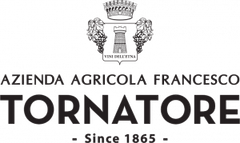
Out of a Sicilian family heritage that traces back to the 17th century, the Tornatore’s Mount Etna wine ventures began in 1865. Today the family’s operations are headed by Giuseppe Tornatore, a businessman whose expertise led to the acquisition of some of the region’s finest north-facing vineyards in the early 2000’s. That heritage and the Tornatore’s profound respect and understanding of the land is showcased in wines that capture the essence of Etna, deftly balancing concentrated flavors, complexity, freshness and refinement.
The company lies in the northern side of Mount Etna, the highest active volcano in Europe. The soils have volcanic origin and were created through the disintegration of lava, ash and stones from previous volcanic eruptions. The climate on the northern side of the Etna is characterized by mild temperatures, and more rain fall reflecting the influence of the Volcano. The combination of soil, climate and the skill of the winemakers, have made the northern slope of Etna an ideal area for the production of high-quality wines. “Our vineyards and our winery are only a few kilometers from our family home. Our entire family is rooted there. We have the greatest respect for this region, and we believe we have a responsibility to be stewards of Etna and to reflect its distinct character in our wines.” - Giuseppe Tornatore
Press Reviews
Wine Align
91 points - Michael Godel
Straight shooter this Etna Rosso, accessible and amenable to all, now and for all the right reasons. Fruit first, ripe and delicious, aromatically charged and energizing the entirety of the wine. Rosso for Rosso’s sake, crunchy and palatable with great toothsome character, A guarantee and stamp of quality in the most professional of Etna Rosso ways. Unwavering consistency from Tornatore. Drink 2025-2028. Tasted May 2025.
90 points - Michael Godel
Were September of 2024 not the most ideal time to experience the sheer beauty of this classically styled and modernized Etna Rosso - Well, May of 2025 is really that. moment. Get at it now, without hesitation, preferably alongside anything that involves Sicilian eggplant in one of it it many local preparations. Last tasted May 2025.
The most understandable and straightforward Etna Rosso there could be, mature and layered, of riches and earth, fruit and soil all in the mix. A volcanic paint by numbers canvas of realism and beauty, easily accessible and generous to a perfectly reasonable degree. Entry point for the DOC and once in, never to look back. Drink 2024-2026. Tasted May and September 2024.
89 points - Sara d'Amato
Pours a pale, luminous hue, this Etna-born red offers notes of dried leaf, gentle earth, white pepper, bramble, and notable brininess. A swell of warmth is noted on the palate. Its delicate red fruited character is contrasted by twiggy flavours and marked tannins. Very good length. Tasted May 2025.
- Red Wine
- Listán Negro
- Sustainable, Vegan-Friendly, Volcanic
- Dry
- Medium Bodied
- 750ml
- 13.5% alc./vol
About the Winery
Viñátigo

Juan Jesús is a proud native of Tenerife and the fourth generation of growers. During the thirty years that he's overseen Bodegas Viñátigo, he has considerably increased its holdings, planting varieties that he and his team recuperated from near extinction.
Driven by passion and love for his homeland, Juan decided to revive and work to save the native grape varieties that were brought to the Canary Islands by the conquers back in the 15th century and that had survived on the islands for centuries. He is a hero of contemporary Canarian viticulture. The wealth of knowledge that his work has created has helped underpin the significant expansion of wine styles that are now available throughout the archipelago, and his wines have achieved a calibre of class that many doubted the Canaries would ever produce again. (The Epic Wines of the Canary Islands, written by Santo Bains).
Press Reviews
Wine Align
92 points - Sara d'Amato
A volcanic gem from the sub-tropical Atlantic outpost of Tenerife, this listán negro erupts with flavour and personality. It hints at a touch of carbonic maceration—its juicy, vibrant fruit leaping from the glass. A mere three months in barrique lends a whisper of spice to the naturally derived aromas of white pepper, licorice root, and wild juniper teasing the nose. The palate is plush and lively, with silky tannins, a salty snap, and a refreshing lift that keeps you coming back. Sustainably crafted and ready to pour—ideally just below room temperature. An engaging sip from a singular terroir. Tasted May 2025.
91 points - Michael Godel
A varietal listán negro with its acidity over tannin and ability to mix fruit with the intangibles created by a relationship with volcanic soils. There are no grapes that scent like listán negro while here staying pure, clean and without idiosyncratic behaviour. Viñátigo travels the experienced and philanthropic road to gift a prime and accessible example that is simply a joy to drink. Use this open to market level red in much the same way you might gamay or frappato but also know you have something of fun, joy and excitement in your glass. Crunchy or "crujiente" as they say, ideal for Korean fried chicken tacos or something more appropriately local like papas arrugadas. Drink 2025-2028. Tasted May 2025.
91 points - John Szabo, MS
The latest release from Viñatigo's pre-phylloxera, own-rooted listán negro vines planted on the north side of Tenerife at up 1000m on the slopes of El Teide Volcano is a wonderfully savoury and perfumed wine, with typically wild, lightly desiccated red berry fruit, dried earth, resinous herbs and faded flowers, with a smoky, tea leaf undertow, complex and intriguing. The palate is also typically smooth and medium-bodied (13.5% alcohol declared), with finely sanded tannins and balanced acids, supple and highly drinkable. I'd suggest enjoying over the near term with a gentle chill - it's not a wine that needs time in the cellar. Tasted May 2025.
90 points - David Lawrason
Listan Negro is the primary red grape of the Canary Islands, growing in volcanic soils at about 500 metres. The nose is fairly generous with cranberry/sour cherry fruit, red rose florals and spices. It is medium weight, juicy and fresh with some drying tannin. You can almost taste the slightly acrid character of the soil on the finish of this wine. The length is very good to excellent. Tasted May 2025
- Red Wine
- Cabernet Franc, Cabernet Sauvignon, Merlot
- Dry
- Medium Bodied
- 750ml
Press Reviews
Wine Align
90 points (2016) - David Lawrason
The 2016 vintage has put some punch into this inexpensive merlot-based Bordeaux. There is a sense of volume and energy. The nose is quite lifted with blackberry/raspberry fruit, notable herbal presence, some meatiness and spice. It is medium-full bodied, with warm alcohol, juicy acidity and some slightly green tannin. The length is excellent. Best 2025 to 2030
89 points (2016) - Michael Godel
Blends merlot, cabernet sauvignon and cabernet franc for a Right bank bruiser, especially at the cost. The wood is still very much in charge and if the 2014 showing at this stage is any indication then 2016 will need even more time to unwind. In this stage the merlot is in full command, verdant, savoury, herbal and with toasty oak flavours yet settled. Wait on this one. Drink 2022-2026. Tasted November 2021.
- White Wine
- Chardonnay
- Organic
- Dry
- Medium Bodied
- 750ml
- 13% alc./vol
About the Winery
Domaine du Château de La Chaize
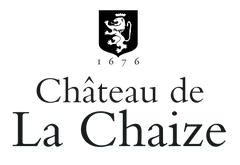
Château de La Chaize is among the oldest, most historic estates in Burgundy’s Beaujolais region. Cared for by the same family for nearly three and a half centuries, the estate has been passed on to new owners, the Gruy family, who are equally committed to managing the estate with the utmost care, while implementing an ambitious environmental plan. Among the many initiatives is the conversion of all vineyards to organic farming, the adoption of precision viticulture, reducing carbon their carbon footprint, and recycling every by-product from viti- and vinicultural activity, to achieve zero waste.
Founded in 1670 by the seneschal of Lyon François de la Chaize d’Aix, the main Château de la Chaize building and gardens were completed by Jules-Hardouin Mansart and André le Nôtre, respectively architect and gardener of the Château de Versailles. Château de la Chaize is among the oldest, most historic estates in Burgundy’s Beaujolais region. Boasting over 250 acres of vineyards, it is also one of the largest. It is today considered one of the most innovative estates in Burgundy. Among its forward- thinking practices is the adoption of eco-friendly farming techniques, commonly referred to as Agriculture Raisonnée. Chemical treatments have been reduced to a strict minimum, for example, and the growing of grass between rows has been re-introduced to enrich the soil and reduce erosion.
Press Reviews
Wine Enthusiast
90 points
This Beaujolais estate also has vines in Pouilly-Fuissé to the north. The wine has good minerality as well as ripe apple and spice. Lightly wood aged, it is a rich, structured and fruity. Drink the wine from late 2020. - Roger Voss
- Red Wine
- Syrah
- Biodynamic, Natural, Organic, Vegan-Friendly
- Dry
- Medium Bodied
- 750ml
- 12.5% alc./vol
About the Winery
Domaine du Coulet - Matthieu Barret
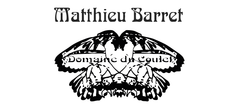
Matthieu Barret was born in Aix-en-Provence in 1975 and studied viticulture in Beaune.
He is the 7th generation vigneron and joined his grandfather in Cornas in 1997. Previously, his family had only been farming and selling grapes. He practices biodynamic viticulture, obtaining very low yields (23 hl/ha) and extraordinary quality. He describes his wines as being 100% grape, with a very low sulphite addition. His wines are extremely clean, and, true to the Cornas character. Domaine du Coulet was founded by Matthieu Barret’s grandfather after WWII, and over the years has supplied grapes to some of the best known producers in the Northern Rhône, including Chapoutier and Delas. While his father eschewed the agrarian lifestyle, opting instead for a career in international business, Matthieu knew early on that he wanted to be a vigneron. In 1998 at the age of only 23, he took over the family’s 25 acres of well-situated vines on the terraced hillsides of Cornas.
From the beginning, Matthieu has employed natural, organic practices and by 2002 (his second year of production) the domaine received its biodynamic certification. With each vintage, Matthieu has gained a better understanding of his vine parcels and through thoughtful experimentation, he now turns out a remarkable selection of Cornas wines that express the unique nuances of each micro-terroir. No new oak, no racking, minimal use of sulfur and no fining or filtration. Pure, sexy Syrah.
- Rosé Wine
- Cinsault, Grenache, Syrah
- Organic, Vegan-Friendly
- Dry
- Medium Bodied
- 750ml
- 13.5% alc./vol
About the Winery
Mas Carlot

Mas Carlot is situated in the south of the Rhône Valley, extending across 76 hectares of pebbly land southeast of Nîmes. Originally a 17th century farm, this beautiful estate was resurrected in the 1960's by the Blanc family—it is currently run Cyril Mares of the neighbouring and equally reputable property, Mas Bressades.
The appellation of Costières de Nîmes used to be considered part of eastern Languedoc but the climate, soil, topography and wine are far closer to those just over the river in the Southern Côtes du Rhône. It is now a region very much on the up and is widely recognized as a great source of excellent value wine.
- White Wine
- Garganega
- Organic, Vegan-Friendly, Volcanic
- Light Bodied
- 750ml
- 12.5% alc./vol
About the Winery
Azienda Agricola Tessari

The Tessari family have Soave in their blood. For three generations they have been extracting delectable wine from the well cared for vines of their Monteforte d’Alpone vineyards. With only a little over a hectare of Garganega grapes in the prestigious volcanic solis of Soave Classico, Antonio Tessari hand dug his cellar back in 1933 and started the legacy that continues today with his grandchildren: Germano, Antonio and Cornelia.
From vineyard to bottle, these three siblings oversee it all; with unwavering respect for tradition, quality and passion for the art of winemaking. The volcanic soils of the hillside are rich with basaltic rocks and clays, which guarantees the health of the plant and the promotes the mineral and floral aromas that are characteristic of the Garganega grape. Truly artisanal wine making at it’s best.
Press Reviews
Wine Align
91 points (2022) - David Lawrason
This shows the vivid yellow colour I expect from good Soave. It also shows the complex, detailed nose honeysuckle, lemon blossom, camomile and almost tropical peach/mango fruit. It is mid-weight, rich and viscous yet shows some enlivening freshness, spritz and tenderness at the same time. Slightly bitter and lemony on the finish. The length is excellent. Tasted January 2023.
90 points (2022) - Michael Godel
The latest volcanically driven garganega from the Tessari family is a child of a promising vintage full of sun, fun and support. The sky is the limit for just how well this will drink and please. It is in fact bottled salty and fruit crunchy deliciousness and why shouldn’t it be? Made simply with tradition in mind, basalt in pocket and all the modern facility made available. Citrus and nectarine, basil and Maldon salt. Lime all over the finish. Spot on. Drink 2023-2025. Tasted January 2023.
4 Stars (2022)- Sara d'Amato
Nervy and salty with a dash of elderflower and pear, this stylish Soave Classico is a favourite of restauranteurs. Richly textured with notes of apple and lemon zest, salt and lime. Quite chalky and dry, with a pleasant degree of roundness despite the moderate level of alcohol. Nicely balanced with a pleasant finish of good length. Drink now. Tasted January 2023.
- White Wine
- Melon de Bourgogne
- Dry
- Light Bodied
- 750ml
- 11.9% alc./vol
Press Reviews
WineAlign
90 points - Sara d'Amato
A Muscadet made with care and reverence, refreshing with a delicate leesy influence contributing toastiness and amplitude. Features more complexity than the norm with flavours of pear, anise, clay and chalk. Saly, energetic and undeniably engaging! Great value. Tasted February 2023.
90 points - Michael Godel
A deliciously leesy and liquid chalky melon de bourgogne that is simply what the doctor orders for those of modest means when they need a quenching after sucking back a briny oyster. This is like liquifying the shell as a chaser and with some mouthfeel to boot. Salty and just refined enough to do the bivalve molluscs pulled from marine or brackish habitats proud. Drink 2023-2025. Tasted February 2023.
90 points - Megha Jandhyala
This golden muscadet was made with fruit from vines that are more than 40 years old, planted on slopes facing south and south-east. It is relatively aromatic, perfumed with notes of honeysuckle, grapefruits, and toasted bread. The palate feels fleshy and rounded but also fresh and vibrant, and delicately salty. The finish is long-lasting, leaving flavours of citrus zest and a fine texture in its wake. I would pair this muscadet with subtly flavoured seafood, like mussels or oysters. Tasted February 2023 by Critic Understudy Megha Jandhyala.
- White Wine
- Grechetto
- Organic
- Dry
- 750ml
About the Winery
Cantina Cenci
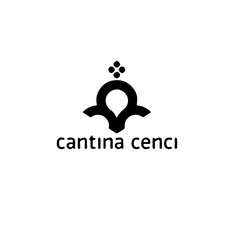
The Cenci Family has been dedicated to viticulture for over four generations, continuing to cultivate the vine with deep respect for the traditions and unique characteristics of the land once owned by the Olivetan monks. In the early 1950s, Mario—an enlightened and forward-thinking agricultural expert, and grandfather of Giovanni—selected clones of Grechetto, Sangiovese, and Malvasia from vines once cultivated by the Olivetan monks and traditionally grown intertwined with mulberry trees. He planted the first vineyards of the estate, and the wines made from those grapes were of such outstanding quality that he secured a long-term contract to supply Grechetto and Sangiovese in traditional flasks to the restaurant of a prestigious hotel in Perugia.
In 2012, following two years of renovation of the farmhouse, the new winery was inaugurated under the guidance of Mario Cenci, architect and brother of Giovanni. Thanks to cutting-edge equipment and winemaking techniques—combined with deep respect for tradition and the passionate leadership of Giovanni Cenci (viticulturist, enologist, food biotechnologist, and sommelier)—Cantina Cenci today produces wines appreciated by a niche audience of expert consumers.
The perfect balance between tradition and innovation has shaped a strong and distinctive brand identity.






















